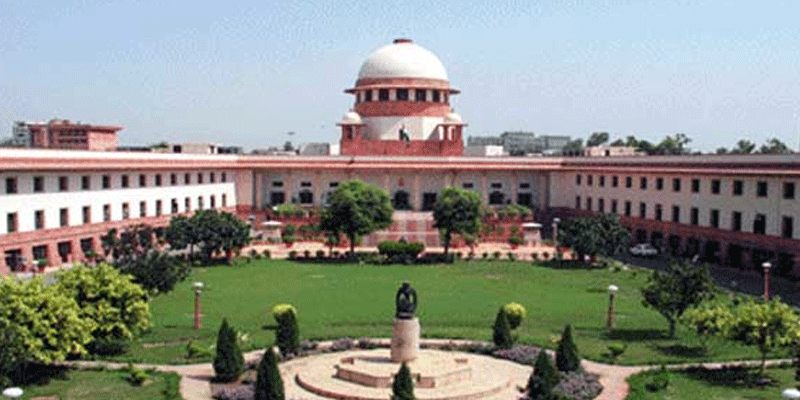
HOW TO BE A SUPREME COURT ADVOCATE
The Supreme Court of India, as the name suggests, is the highest judicial authority in the country. The Supreme Court of India was established on January 26, 1950. It is also known as the Apex Court. It’s the highest authority of appeal which safeguards the fundamental rights of its citizens. All the decisions given by the apex court are binding on all the Courts, State Governments, and Union Territories of the country.
To be an advocate in the Hon’ble Supreme Court of India, the basic qualification needed is LLB, i.e., Bachelor of Law (Legum Baccalaureus) from any university recognized by the Bar Council of India (BCI). It can be 5 years of integrated law course or a 3-year-old bachelor of law. Once LLB is complete, there is another qualifying open book examination conducted by the All India Bar Association (AIBA), which grants the advocate the license to practice in any court all over the country after enrollment in the respective state bar council. Any student from any stream (Science, Humanities, or Commerce) can opt for this profession after appearing for the national level and the state level law entrance test.
The legal profession is considered one of the noblest professions of all times, and hence after attaining the degree and getting enrolled in the bar council, the lawyers earn the white band to wear along with the black suit. This white band signifies only truth.
In Supreme Court and High Court, the advocate has to wear the black robe and the uniform; however, in Supreme Court, the advocate has to wear the robe throughout the year whenever they are stepping into the court premises.
According to the Advocates Act, 1961, there are different types of advocates in the Supreme Court of India:
- Designated Senior Advocates:
The Designated Senior Advocates who earn the designation for their extraordinary excellence in the legal profession after the continuous practice of a minimum of 10 years. Late Shri P.P Rao, Late Shri Soli J. Sorabjee, Shri K.K Venugopal, Shri Fali S. Nariman, and Shri Mukul Rohatgi were a few doyens of the legal profession who were honored by the Supreme Court as Designated Senior Advocate. Their contribution to the legal profession is unrivaled.
- Advocate-on-Record:
The Advocate-On-Record (AOR) are those advocates who, after fulfilling the eligibility qualification, appear for the exam conducted by the Supreme Court. They are the only authorized advocates who can file a vakalatnama in the Supreme Court. Hence he/she is held answerable to the court. The Supreme Court conducts the paper for the AOR examination. There are 4 papers, namely Supreme Court Practice and Procedure along with the Constitution of India, Drafting as per the Supreme Court format, Leading cases of Supreme Court (which developed law), and Professional Ethics. After clearing all these papers, the advocate becomes an AOR.
- Advocates:
Then comes the simple advocate, who might be a chamber junior or an independent advocate; they can argue in the court.
Skills to become successful advocate:
Apart from these, the most important qualities or skills for anyone to be successful as an advocate of the Supreme Court of India are
- good communication skills,
- confidence,
- good legal acumen,
- research skill,
- perseverance,
- listening skills and good writing skills,
- patience,
- Sense of duties towards the client, court, opponent, and society.
Time management is also an essential factor that sets apart a good advocate from the crowd. Polishing these skills and being diligent can be an outstanding advocate in the Hon’ble Supreme Court of India.
As a budding advocate, one must listen carefully to the senior’s arguments and note down valid points. Listening to the way the seniors argue, conducting themselves with the bar and the bench and also the clients, and being thorough with the legal points of the case laws are a few critical points that are ever learning for an advocate. Another important aspect that must be kept in mind while practicing in Supreme Court is the focus on the question of law rose in each case, as there are no arguments on the facts of the case but the question of law.
With consistent hard work, patience, and determination, anyone can become a very successful advocate.




